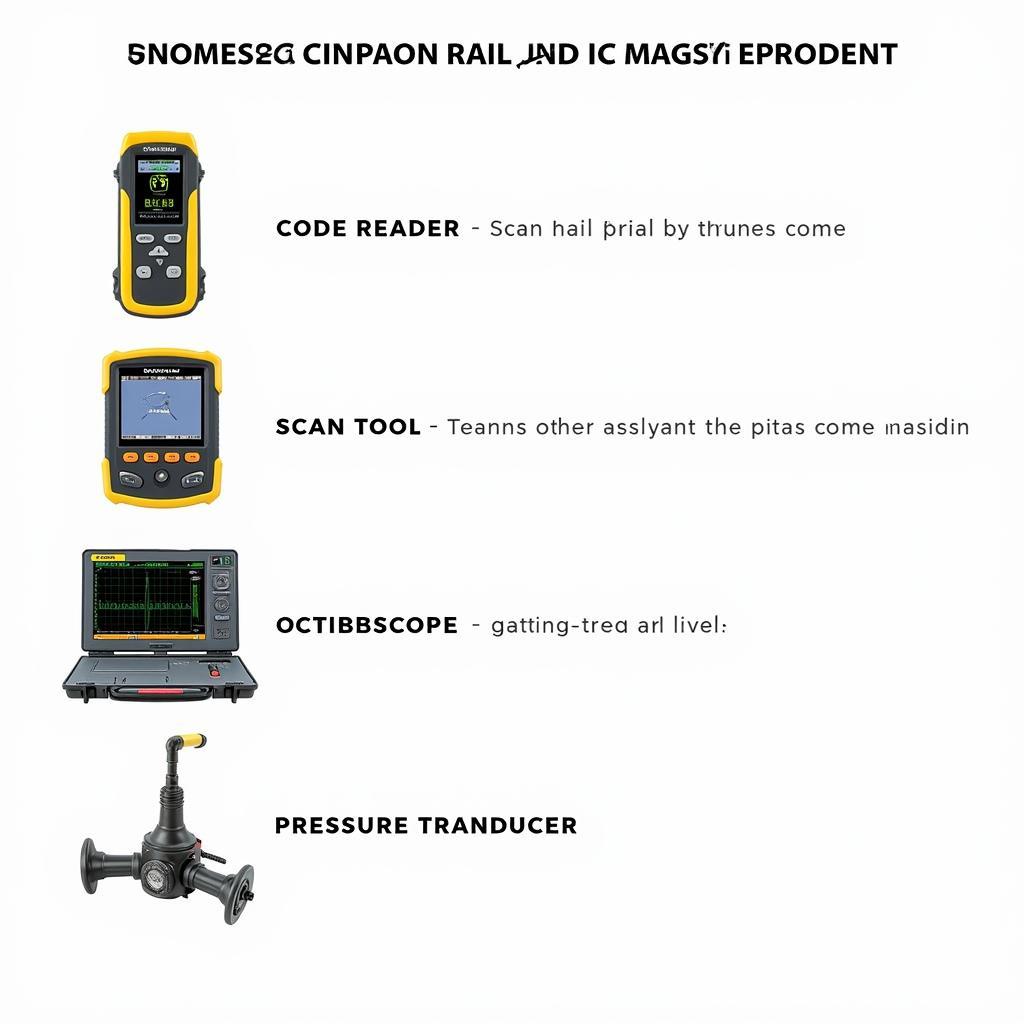The Diagnostic Tool Approval Pipeline can seem daunting, but understanding its complexities is crucial for auto repair shops, technicians, and even car owners. This article will delve into the intricacies of this process, providing valuable insights for navigating the approval landscape.
Understanding the Diagnostic Tool Approval Pipeline
The approval process for diagnostic tools isn’t a walk in the park. It involves rigorous testing, validation, and compliance with industry standards. Why is this process so important? Because it ensures that the tools used to diagnose and repair your vehicle are accurate, reliable, and safe. This safeguards both you and your vehicle from potentially costly misdiagnoses or improper repairs.
Key Stages in the Diagnostic Tool Approval Pipeline
The diagnostic tool approval pipeline typically involves several key stages:
- Development and Testing: This phase focuses on designing and testing the diagnostic tool’s hardware and software. Rigorous testing ensures that the tool functions correctly and delivers accurate results.
- Validation and Verification: Independent organizations validate and verify the tool’s performance against established industry standards. This ensures the tool meets specific requirements for accuracy, reliability, and safety.
- Compliance and Certification: Diagnostic tools must comply with various regulations and certifications, such as those set by SAE (Society of Automotive Engineers) and other regulatory bodies. This ensures the tool meets legal and safety requirements.
- Market Entry and Distribution: Once approved, the tool enters the market and becomes available to auto repair shops and technicians. This stage involves marketing, sales, and distribution to reach the end-users.
Why is the Diagnostic Tool Approval Pipeline Important?
The diagnostic tool approval pipeline plays a critical role in ensuring the quality and reliability of diagnostic tools. This is essential for several reasons:
- Accurate Diagnoses: Approved tools provide accurate diagnoses, which are crucial for effective repairs. An inaccurate diagnosis can lead to unnecessary repairs, wasted time, and further damage to the vehicle.
- Safety: The approval process ensures that diagnostic tools are safe to use and won’t cause harm to the vehicle or the technician. This is particularly important for tools that interact with the vehicle’s electrical systems.
- Consumer Protection: The approval pipeline protects consumers from faulty or unreliable diagnostic tools. This helps prevent costly misdiagnoses and unnecessary repairs.
How to Choose an Approved Diagnostic Tool
Choosing the right diagnostic tool can be challenging. Here are some tips to help you select an approved and reliable tool:
- Check for Certifications: Look for certifications from reputable organizations like SAE. These certifications indicate that the tool meets industry standards.
- Research the Manufacturer: Choose a reputable manufacturer with a proven track record of producing quality diagnostic tools.
- Read Reviews: Check online reviews from other technicians and auto repair shops to get real-world feedback on the tool’s performance.
The Future of Diagnostic Tool Approvals
The automotive industry is constantly evolving, and so is the diagnostic tool approval pipeline. With the rise of electric vehicles and autonomous driving technologies, the demand for more sophisticated and advanced diagnostic tools is increasing. The approval process must adapt to these changes to ensure that new tools meet the evolving needs of the industry.
“The future of diagnostics is moving towards more sophisticated, software-driven tools,” says John Smith, Senior Automotive Engineer at Acme Auto Solutions. “The approval pipeline must keep pace with these advancements to ensure the safety and reliability of these new technologies.”
Staying Informed about Diagnostic Tool Approvals
Staying informed about changes and updates in the diagnostic tool approval process is essential for technicians and auto repair shops. Here are some resources to help you stay up-to-date:
- Industry Publications: Subscribe to industry publications and journals that cover automotive technology and diagnostic tools.
- Professional Organizations: Join professional organizations like SAE to access resources and information about diagnostic tool approvals.
- Manufacturer Websites: Check the websites of diagnostic tool manufacturers for updates and information about their products.
“Keeping up with the latest diagnostic tool approvals is crucial for staying competitive in the automotive repair industry,” adds Jane Doe, Lead Technician at Auto Repair Pro. “It ensures that we’re using the best and most reliable tools to diagnose and repair our customers’ vehicles.”
In conclusion, the diagnostic tool approval pipeline is a critical process that ensures the quality, reliability, and safety of diagnostic tools. Understanding this process is crucial for anyone involved in automotive repair, from technicians to shop owners. Contact ScanToolUS at +1 (641) 206-8880 or visit our office at 1615 S Laramie Ave, Cicero, IL 60804, USA for any questions regarding diagnostic tool approvals. We’re here to help you navigate the diagnostic tool landscape and ensure you’re equipped with the best tools for the job.
FAQ
-
What are the most important certifications to look for in a diagnostic tool? Certifications from reputable organizations like SAE are crucial indicators of quality and compliance.
-
How often are diagnostic tool approvals updated? Approvals and standards are constantly evolving, so it’s essential to stay updated through industry resources.
-
Where can I find information about the latest diagnostic tool approvals? Industry publications, professional organizations, and manufacturer websites are valuable resources.
-
Why is it important to use an approved diagnostic tool? Approved tools ensure accurate diagnoses, safety, and consumer protection.
-
What is the role of independent organizations in the approval process? They validate and verify the tool’s performance against established industry standards.
-
How can I stay informed about changes in the diagnostic tool approval pipeline? Subscribe to industry publications, join professional organizations, and follow manufacturer updates.
-
What is the impact of new technologies on the diagnostic tool approval pipeline? Advancements in electric and autonomous vehicles require more sophisticated tools and necessitate ongoing adaptation of the approval process.


